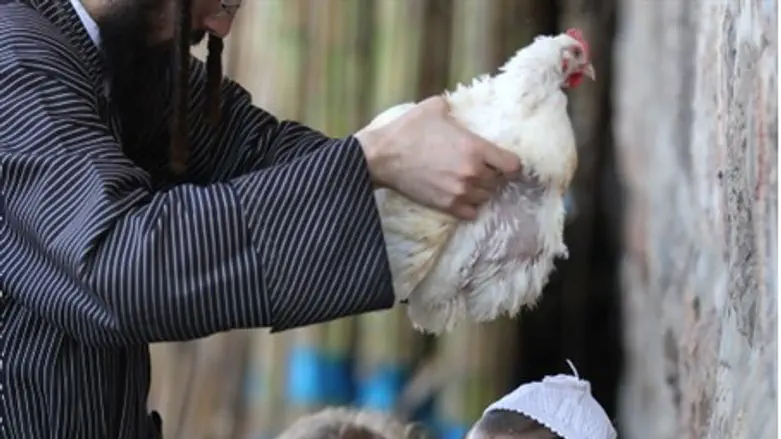
As Jews throughout the world prepare for Yom Kippur, Environment Minister Amir Peretz slammed one of the practices associated with the holy day – kaparot, in which a chicken is used as a “stand-in” for an individual and is slaughtered in lieu of a human being as punishment for sins. The meat is then usually handed out to the poor.
According to Peretz, the practice is cruel and should be banned.
“Yom Kippur is a day of introspection and kindness. We need to practice that kindness and preserve our humanity, and one way to do that is to dispense with practices that cause excessive suffering in animals.”
Kaparot, he said, qualifies as one of those practices. “Tens of thousands of chickens are forced to suffer unnecessarily, stuck for hours in the hot sun in tight cages, and then waved over the heads of people. At the end of the ceremony the chickens are slaughtered,” often in an unkosher manner, he added.
According to many authorities on Jewish law, the kaparot procedure can be conducted using money instead of a live chicken. The money is then donated to charity, usually to purchase food for needy families to enable them to celebrate the High Holidays more comfortably. That, Peretz said, would be the proper procedure here as well. “The custom can be kept by waving money over the head, and I would recommend that people do that and save the chickens from suffering.”
Last week, Agudath Israel of America, the umbrella group for many Orthodox and ultra-Orthodox synagogues and schools in the US, reissued a notice (kol koreh) that was first published seven years ago warning those using actual chickens for the kaparos ritual to ensure that the procedure and process takes place under strict rabbinical supervision.
“Halachic authorities have long pointed out the need for special care to be taken during the Kaporos process that the chickens be slaughtered and processed properly, especially on Yom Kippur eve, when many shochtim (ritual slaughterers) spend long hours slaughtering large volumes of chickens,” the notice says. “In addition to ensure proper slaughtering, proper care is needed to ensure that matters as health and safety concerns (both those that concern the well being of those who handle the chickens, as well as those that concern the safety of the food)” are followed, as well as “scrupulous compliance with theTorah’s laws of tza’ar ba’alei chayim (prevention of cruelty to animals) throughout the entire process of storing, transporting and handling the chickens, which should be done by responsible adults, not children.”
“We have enlisted the assistance of a group of distinguished local Rabbis to work together with the proprietors and sponsors of Kaporos centers and with kashruth supervisors to implement proper standards, and to oversee the centers to ensure that nothing improper transpires in the Kaporos process,” the notice adds.
The Kaparot custom dates back to the Middle Ages and was even controversial back then - with some major rabbinic figures criticizing the use of live animals as unnecessarily cruel, and even "pagan".